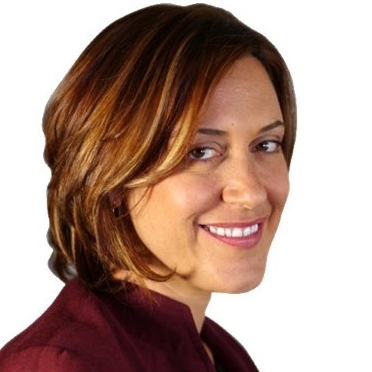click to dowload our latest edition
CLICK HERE TO SUBSCRIBE TO OUR NEWSLETTER


Published
6 years agoon
By
adminPAULA SLIER
This has been a good World Cup for Russia – a chance to showcase the best that the country has to offer and to raise its geopolitical profile globally. More than two-and-a-half million tickets were sold to fans, who flew in from across the world and Putin hosted prime ministers and presidents alike.
The games were not marred by violence or terrorism and, despite being the lowest-ranked side, the Russian team performed beyond all expectation. Pictures of fans taking to the streets and celebrations across Russia carrying on into the early hours of the morning were a welcome change from the negative image many have come to associate with the country.
I watched Germany lose against South Korea while I was in Berlin, and the joke doing the rounds was that the only difference between the South African and German sides was that at least South Africa lived up to its expectations. Russia certainly has. The crowning moment will come the day after the final, next Monday, when Putin and US President Donald Trump hold their first summit meeting in the Finnish capital.
It will be five days after the Russian president met with Netanyahu in Moscow – and Israelis proudly boast that Putin invited Netanyahu to watch the the semi final game in his box alongside him. To be fair, Palestinian Authority President Mahmoud Abbas was also invited in what is interpreted as a major diplomatic coup. This goal, perfectly executed by Putin, comes as Moscow continues to assert its diplomatic skills and influence.
This was Netanyahu’s third visit to the Russian capital since the beginning of this year. In addition, he’s spoken with the Russian president six times on the phone. Their friendship and close working relationship is evident, as is the similar rapport between Netanyahu and Trump.
The Israeli leader has repeatedly thanked Trump for his position on Iran, as well as “the defence the US now provides Israel at the United Nations day in, and day out… America has no greater friend than Israel, and Israel has no greater friend than America,” Netanyahu said recently.
And so the Israeli premier is in the enviable position of having his views and concerns, especially with regard to Iran and Syria, well known and understood by both leaders.
Three days before Netanyahu met with Putin, the Israeli Air Force (IAF) is believed to have attacked an Iranian airbase in Syria, near the city of Homs. It’s the third such strike on the site this year alone, and the timing is not coincidental. It clearly sends a message that Jerusalem will not shy away from protecting its interests, regardless of Russian reservations and/or an Iranian reaction.
As it has done in recent weeks, the Kremlin kept quiet following the attack, despite the fact that Russia controls the skies over Syria. It confirms a widely held belief that Moscow will turn the other cheek each time Israel strikes Iranian targets inside Syria. But this is not enough for Netanyahu. Neither is the indication from Russian officials that they will act if the Iranians come closer than 80km to the Israel-Syria border.
Netanyahu’s argument – and he stressed this in his meeting with Putin, as he has done on numerous occasions with Trump – is that it is not sufficient to draw an artificial line in the sand dozens of kilometres away from the Israel-Syria border. Iran has weapons that can reach further than 80km, which is why, from Israel’s perspective, for as long as there is an Iranian presence in Syria, even indirect, the country feels threatened.
The Israelis worry that Iran is attempting to gain a foothold in southern Syria as a base from where to attack the Jewish state. Netanyahu wants all Iranian forces and associated militias driven out of the country. For him, first prize would be if Trump asks Putin, come Monday’s summit, to curb Iran’s military operations in Syria, but that might be too tall an order for the Russian president to deliver on. He would risk rupturing relations with his allies in Tehran and could leave Russian forces having to do the lion’s share of the remaining fighting in Syria – a burden that Moscow does not want to shoulder. Although Russian (and Syrian) officials seem less keen on collaborating with Tehran than they were in the past, it doesn’t mean they are necessarily on the same page as Israel.
Russia’s Foreign Minister Sergey Lavrov recently said it was “absolutely unrealistic” to expect Iran to completely withdraw from Syria. On the table is a proposed ceasefire deal brokered by Russia, Jordan and the US, in which non-Syrian forces will be withdrawn from the Israel-Syria border area and replaced with Syrian troops. It is not ideal for Jerusalem, but it seems Israeli officials have come to terms with the fact that Syria’s President Bashar al-Assad will continue to rule Syria in some capacity in the future.
As for Iran, most observers agree that Tehran is unlikely – at least, any time soon – to launch a retaliatory attack on Israel following its (suspected) strikes.
Jerusalem, and indeed the whole world, will be closely watching the first summit meeting between Putin and Trump. The two leaders could not be more different. Trump’s spontaneous approach to negotiations, compared to the very measured and unfathomable style of the Russian president, make predicting its outcome close to impossible. And yet Netanyahu is happy.
Among the items on Monday’s agenda is Syria and Iran. Whatever Trump and Putin decide, or don’t decide, they are likely to continue to support, or at least not oppose, Israel’s actions in Syria and remain sensitive to Israeli concerns. When Netanyahu smiled at the cameras from Luzhniki Stadium on Wednesday night, he was smiling about more than just front-row seats to the beautiful game.
